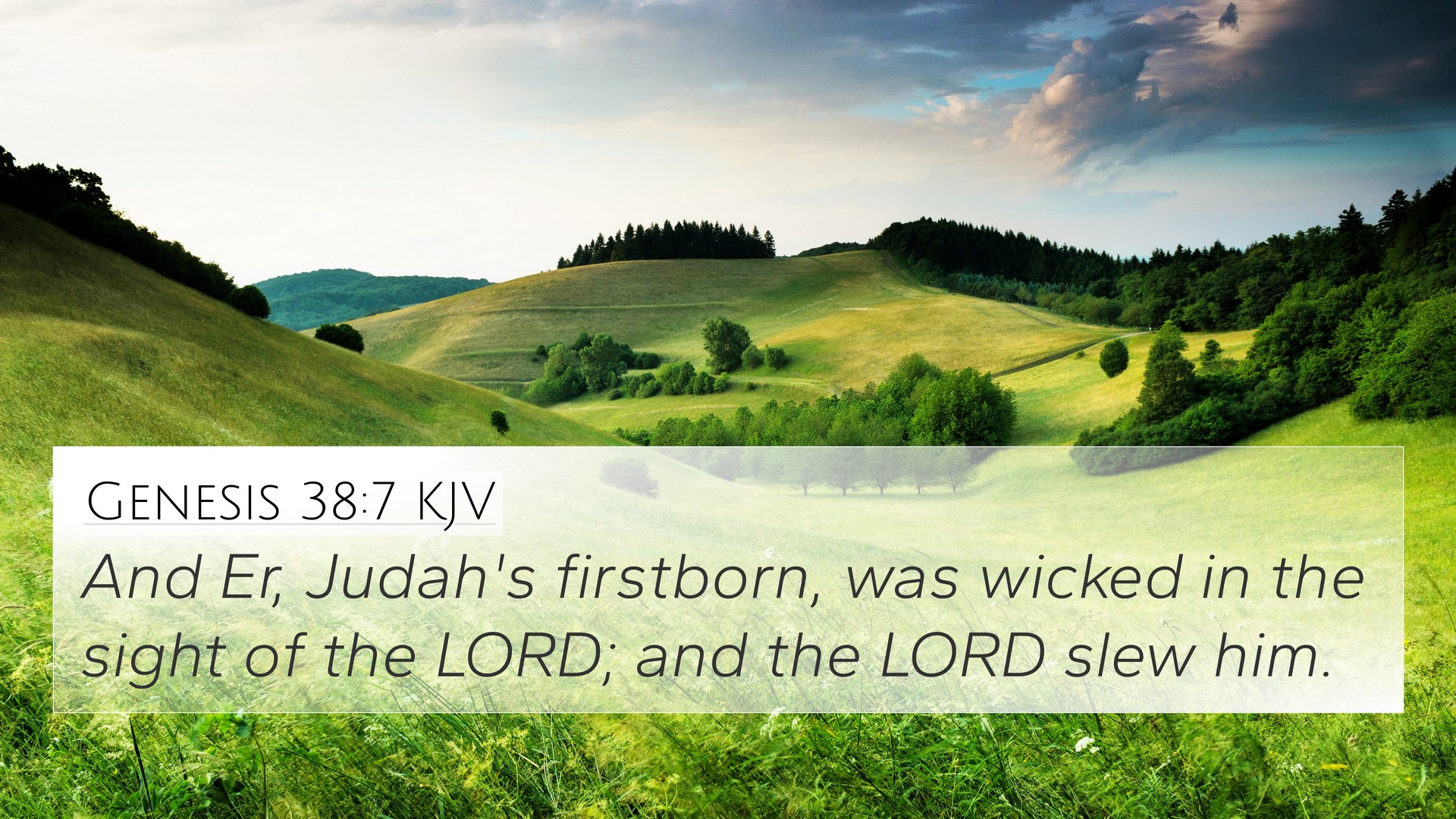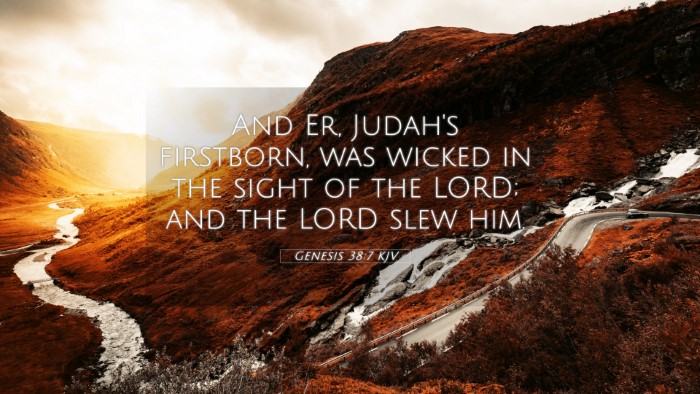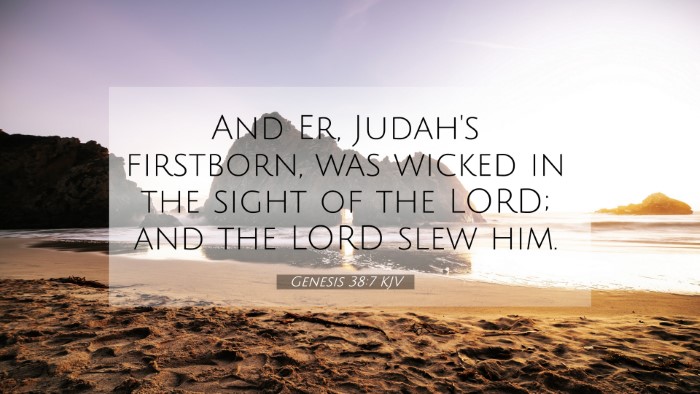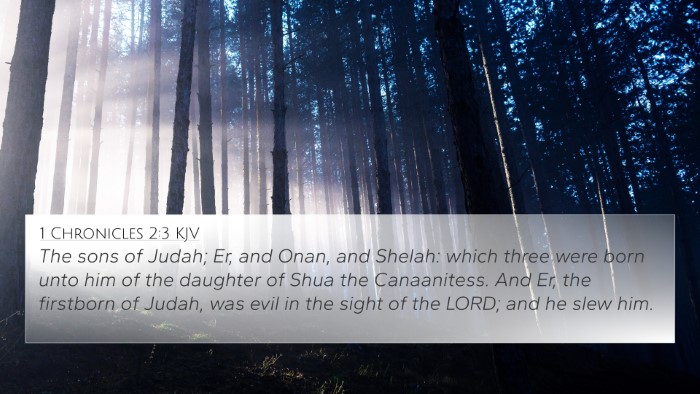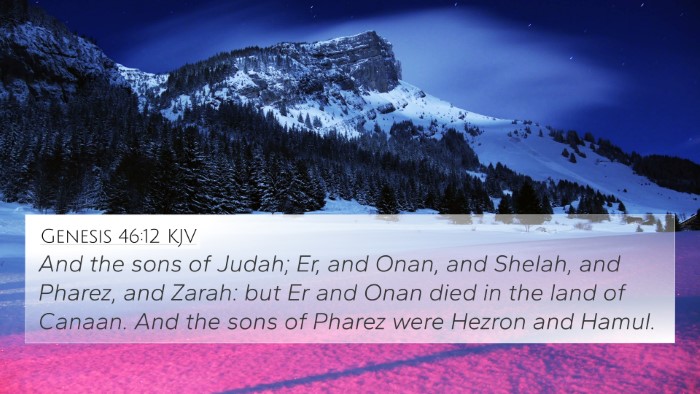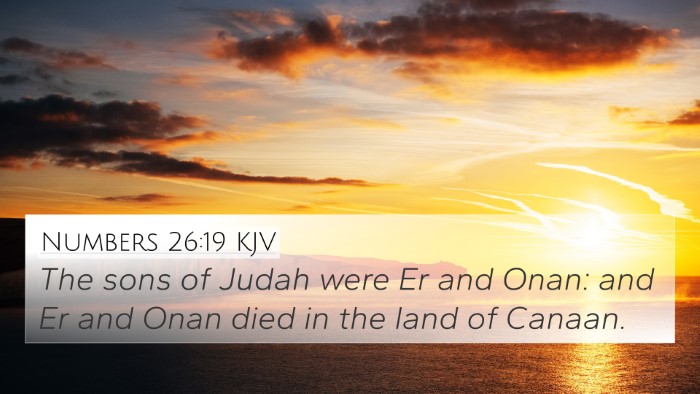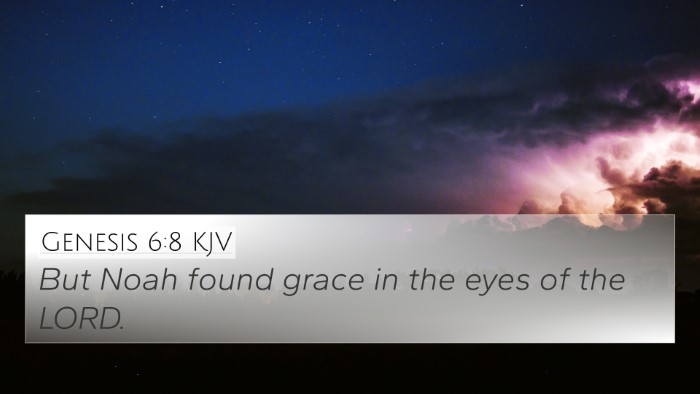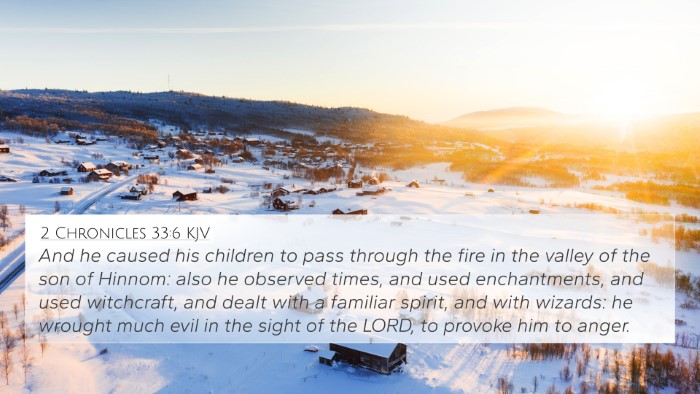Understanding Genesis 38:7
Verse: Genesis 38:7 - "And Er, Judah's firstborn, was wicked in the sight of the LORD; and the LORD slew him."
Summary and Meaning
This verse presents a somber account of Er, Judah's firstborn son, whose wickedness led to his demise. The phrase "was wicked in the sight of the LORD" indicates that his actions were not merely evil by societal standards, but were directly offensive to God.
Commentary Insights
- Matthew Henry: He emphasizes that God's judgment comes upon those who are persistently wicked. Henry suggests that Er’s wickedness, although not explicitly detailed in the text, speaks volumes about how serious sin is viewed by God.
- Albert Barnes: Barnes reflects on the gravity of Er's sin, noting that the lack of specific details does not diminish the reality of divine judgment. He indicates this serves as a warning about the consequences of rebellion against God’s commandments.
- Adam Clarke: Clarke dives into the character of Er, positing that his wickedness might involve idolatry or moral corruption, diverging from the covenant faith of his ancestors. Clarke reaffirms the principle that God’s judgment often serves as a mechanism for divine justice in the unfolding narrative of Israel.
Connections Between Bible Verses
Genesis 38:7 serves as a poignant point in the genealogy of Judah to highlight God's views on wickedness and its consequences. The verse parallels several other scriptures that speak about divine judgment and moral conduct:
- Deuteronomy 9:5: This verse discusses God's judgment upon sin, underscoring that it is not the righteousness of the people, but their wickedness that incurs divine wrath.
- 1 Samuel 15:23: Here, rebellion is equated with witchcraft, suggesting the seriousness of turning away from God's commands.
- Proverbs 11:21: This verse affirms that the wicked shall not go unpunished, tying back into the premise established in Genesis 38:7.
- Isaiah 57:21: God's judgment is also emphasized here, wherein life and death are determined by one's stance before Him.
- Ezekiel 18:30-32: This scripture urges repentance and emphasizes God's desire for the wicked to turn back to Him to avoid judgment.
- Romans 6:23: The Apostle Paul magnifies the consequence of sin, stating that the wages of sin is death, reinforcing the outcome prevalent in Genesis 38:7.
- James 1:15: James outlines the process of sin leading to death, solidifying the connection that sin is ultimately destructive.
Thematic Bible Verse Connections
The theme of God's judgment on wickedness is prevalent throughout scripture and helps to understand Genesis 38:7 within a broader biblical context:
- The law of sowing and reaping: Galatians 6:7 emphasizes that what we sow, we will reap, which correlates with Er's demise due to his wicked actions.
- God's holiness and justice: Numerous verses (e.g., Psalm 7:11) reinforce that God is a righteous judge who cannot tolerate sin.
- Mercy and Judgment: While God is merciful, His judgment on habitual sin is clear (Romans 2:6).
Cross-Referencing Biblical Texts
Cross-referencing serves as a vital tool for understanding the Bible's message holistically. By analyzing Genesis 38:7 in conjunction with the aforementioned verses, one can discern a pattern of behavior that leads to divine consequences, thus enhancing our comprehension of biblical principles.
Cautions Against Misinterpretation
It is essential to approach Genesis 38:7, and similar verses, with caution, avoiding the oversimplification of God's justice as merely punitive. When examining the deeper implications and promoting an honest dialogue about sin and grace, one gains a fuller understanding of scripture.
Conclusion
In summary, Genesis 38:7 serves as a stark reminder of the seriousness with which God regards wickedness and the accompanying judgment that follows. It encourages readers to reflect on their own lives against the standard of divine truth and righteousness.
Further Study
For those interested in deeper studies, consider utilizing:
- Bible concordance for thematic studies.
- Cross-reference Bible study guides to explore interconnected scriptures.
- Tools for cross-referencing Biblical texts which can help in sermon preparations and theological discussions.
- Researching comparative studies of legal texts within the Old Testament and their manifestations in the New Testament.
